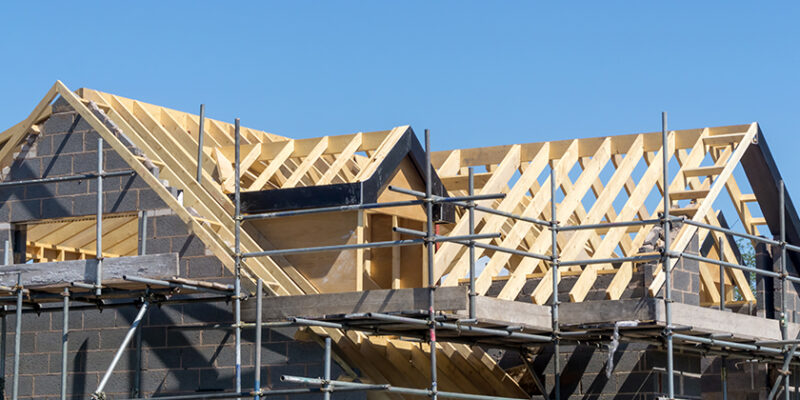In June this year, the Scottish Ministers published the Building Safety Levy (Scotland) Bill (“the Bill”), which proposes a new tax on the construction or conversion of certain residential property developments.
A quick refresh: what is the purpose of the tax and what does the new Bill propose?
The proposed new tax aims to raise money to fund improvements to building safety in Scotland, with the tax primarily being earmarked to help fund the Scottish Government’s Cladding Remediation Programme. The costs associated with cladding remediation should not fall directly onto affected homeowners, and this new tax looks to offer a solution towards funding these remedial costs.
This Bill follows several actions taken by the Scottish Government since the tragic Grenfell Tower fire and follows a broadly similar change being introduced in England both such responses aiming to improve overall building safety.
If approved by Scottish Ministers, this new tax is set to apply from April 2027 and will be administered by Revenue Scotland.
In summary the Bill proposes: –
What will the tax apply to?
The tax is to apply to new residential units. These are described as units which consist of either the whole, or part of newly constructed or newly converted buildings, that are intended to be used as a dwelling (or other accommodation) as at the completion date.
The most obvious scenario in which this new tax will therefore apply is the construction of new build homes for onward sale.
In addition, the Bill specifically confirms that build to rent, student accommodation and halls of residence are among the properties to be subject to the new tax, however, care homes, hospices and boarding schools (among others) are not.
The Bill also creates exempt residential units. Broadly, these are:
- Units that are intended for social and affordable housing;
- Any building conversions that do not change the overall number of dwellings available in the building; and
- New residential units situated on certain islands.
Who will be liable to pay?
The new tax is to be payable by the owner of the new residential unit on the date when the application for (a) the completion certificate or (b) grant of permission for temporary occupation, if earlier, is made.
The tax will primarily affect residential property developers who will be required to register with Revenue Scotland.
There are also specific provisions regarding so-called “special cases”. The Bill confirms, for example, that group companies are to be registered together as one ‘person’ in the name of a representative member and that all members of the group are to be jointly and severally liable for any tax due by the other group members.
When will the tax be chargeable?
The Bill intends for the tax to become payable on the date of (i) the acceptance of a completion certificate in respect of the construction of, or conversion of, a building or part of a building, or (ii) if earlier, the grant of permission for temporary occupation of that building.
How is the tax to be calculated?
The rate of tax to be paid is to be an amount prescribed by the Scottish Ministers as it applies to each square metre of floorspace.
The Bill allows the Scottish Ministers to set different tax rates for different geographical areas, for different types of land, or, rather broadly, for any other factor they consider appropriate.
How will Revenue Scotland administer the tax?
Revenue Scotland will be required to keep a register for the purposes of the collection and management of the levy. The Bill confirms that Revenue Scotland may publish certain information derived from the register.
Will there be imposed penalties?
The Bill intends for there to be penalties payable for a number of events, largely resembling the penalties payable under the Land and Buildings Transactions Tax regime. This means there are likely to be penalties payable for failures to make a return and failures to pay tax.
Will there be any reliefs or tax-free allowances?
The Bill does not provide for any specific reliefs or allowances; however, it confirms that the Scottish Ministers may, by regulations, make provision for and in connection with reliefs and tax-free allowances.
A few months on… what remains unclear about the new tax?
Whilst the Bill offers some detail, it still leaves a number of questions unanswered, such as:
What does this mean for projects that are currently underway?
The Bill does not mention whether there is to be an easing in period, where projects that are already underway (be that underway and due to complete after April 2027, or those that have planning consent and building warrants where work is set to commence prior to April 2027) are to be exempt from the operation of the tax. If an easing in period is not set, housebuilders may be required to pay the costs associated with this new tax that have not been accounted for.
What will the tax rates be?
At present, the Bill also does not indicate what the tax rates will be, leaving this to be set by the Scottish Government. It’s a case of wait and see when it comes to what the tax rates will actually look like and how this tax will impact the viability of future development.
What will the tax fund longer term?
Finally, once all cladding remediation works have been completed, what will this tax be used to fund? Will it cease to exist, or shall it be re-purposed?
What has been the response from the sector so far?
The Scottish Property Federation (SPF) has produced a report, outlining a number of concerns with the proposed tax. Among other factors, they are concerned that the introduction of this new tax, during a declared housing emergency, may only worsen the problem. They have also expressed concern that this new tax places yet another burden on the Build to Rent sector – which is already impacted by rent controls and high construction costs.
In their report, the SPF also call for further clarity around a number of factors – including, the definition of affordable housing and how transitional arrangements will work in practice.
Universities Scotland has also published a report responding, in part, to the proposal for student accommodation and halls of residence to be included within the remit of the tax. It is discussed that the imposition of this new tax may impact on the affordability and availability of quality student accommodation.
The Bill is currently still at a very early stage in the legislative process, therefore, the impact it will have on the housing sector in Scotland cannot yet be ascertained, but it is certainly one to watch alongside other current emerging legislation including the progress of the Housing (Scotland) Bill.
If you are looking for advice on how these potential changes may impact you, please contact our Housebuilding Team.


